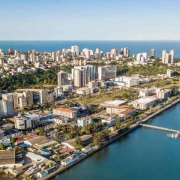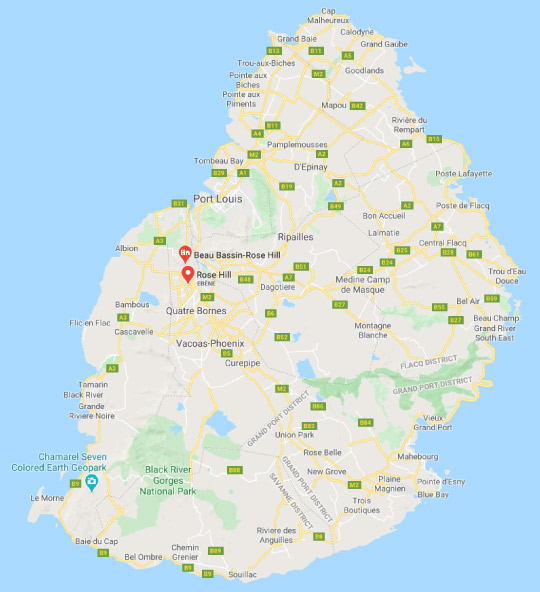NEWS | UNLOCKING MOZAMBIQUE’S POTENTIAL: IMMIGRATION AND TAX CONSIDERATIONS
/in Archived, News /by xp-adminThis led to last year’s $20bn investment plan that is set to deliver liquid natural gas by 2024, and supply to global markets, including South Africa.
The need for critically skilled individuals
Multinationals in the oil and gas sector have identified South Africans with scarce skills as critical to their projects in Mozambique. These skills range from engineering, accounting, construction to legal expertise. Beyond the individual skill set of the South African market, various companies in the industry, are tendering to subcontract as part of the project and require guidance immigration and tax considerations in Mozambique.
As most of the Mozambique LNG projects are based in Cabo Delgado, and Afungi regions, it is important to consider the Mozambican legislative framework, and provincial specific legislation, and how it will impact immigration and tax compliance.
Immigration considerations
When bringing in skilled expatriates, it is important to apply for work permits in the province they will be physically working in and not where the operations are conducted.
If the operations are conducted from a head office in Johannesburg or Maputo it will be critical to open a branch in the province where the foreign nationals will work and to apply for permits in that province.
Although it may not be difficult to set up a branch, it can be a time-consuming process. Companies who are not familiar with the legislative framework in Mozambique are bound to make mistakes, which may delay setting up of their operations and getting their work permit applications processed in time. Typical setup may take four to six weeks, Non-compliance with immigration, tax, social security or labour matters will certainly impact future dealings with authorities in the country. Furthermore, companies do not want to discover once they have completed the registration process that they do not qualify for work permits in the province their expatriates are supposed to work.
This can be avoided by making use of specialists who have already built up solid relationships with the relevant authorities and will be able to avoid “official roadblocks” that may delay operations and projects.
Government policy considerations
Mozambique encourages local employment and the quota for foreign nationals can be restrictive and costly where not adhered to. Some guidelines listed below.
- Companies may employ 8% foreign nationals as part of their total workforce if they have more than 10 and up to 100 Mozambicans employed.
- Companies can submit “out of quota” applications when they need more specific skills that are not covered by the quota allocations. The processing time can be up to six months. The fee associated with these applications are calculated based on ten times the minimum salary in the sector.
- The “in quota” process is more lenient, and although it is still a layered process, applications for work permits are generally granted within a month.
- Companies involved with LNG projects can also get certain concessions for foreign nationals when they invest in Mozambique and submit a development plan. The concession removes the quota on the number of foreign nationals it can bring in in order to complete the project successfully and timeously.
Taxation considerations
When project houses bring foreign nationals, namely South Africans, they should be cognisant of their potential tax liability in their Home Country. When looking at South African workers, prior to March of this year, all foreign income was exempt from tax in South Africa if the expat met specific requirements under Section 10(1)(o)(ii) of the South African Income Tax Act (ITA).
However, from 1 March 2020 onwards, only the first R1.25m of the foreign income will be tax exempt going forward. This includes Fringe benefits such as motor vehicle allowances, accommodation, school fees and security measures will be included in the remuneration.
Employers’ role in mitigating South African “expat tax”
As South Africans working in Mozambique will most likely do so on a rotational basis, their options are limited in terms of tax relief. A certain level of employer “buy in” is needed in order to assist these workers mitigate or nullify the tax exposure back in South Africa.
Employers should rely on the relevant rulings or directives issued by the South African Revenue Service (SARS) when calculating the value of company benefits such as accommodation. In many African countries the “accommodation” is quite basic and can be anything from a tent to a hut, container, or a cabin. In terms of the legislation, a formula is applied to determine the value of accommodation. However, in the absence of market related documentation SARS will tax the value of accommodation at 19% of the total package. This is an unrealistically high rate for a “tent”, therefore a directive must be obtained from SARS on how to value that type of accommodation.
Employers can also allow South African expats to participate in an offshore pension fund where the employer contributes an amount of the total package to the fund, thereby reducing the taxable income of the South African. This, however, an extremely complex process and you should not use a provider that follows a “fingers crossed” approach but rather where the legal integrity of the transaction is guaranteed.
The crux of the matter is, where tax planning is not done upfront, this may increase the total cost of employing South Africans, and the additional administration of structuring packages for tax purposes may result in South Africans becoming less attractive as employees.
Concluding remarks
We strongly recommend that Multinationals looking to establish a presence in Mozambique take heed of the immigration and taxation roadblocks that may present themselves. Proper planning and due diligence must be followed to ensure a smooth transition, especially where you plan to employ critically skilled South African workers.
Africa House is hosting a B2B webinar on the 4th and 5th of August 2020, in collaboration with Xpatweb and Tax Consulting Africa, and which aims to unpack how companies with an interest in supplying goods and services in Mozambique can effectively establish a presence as well as local partnerships.




